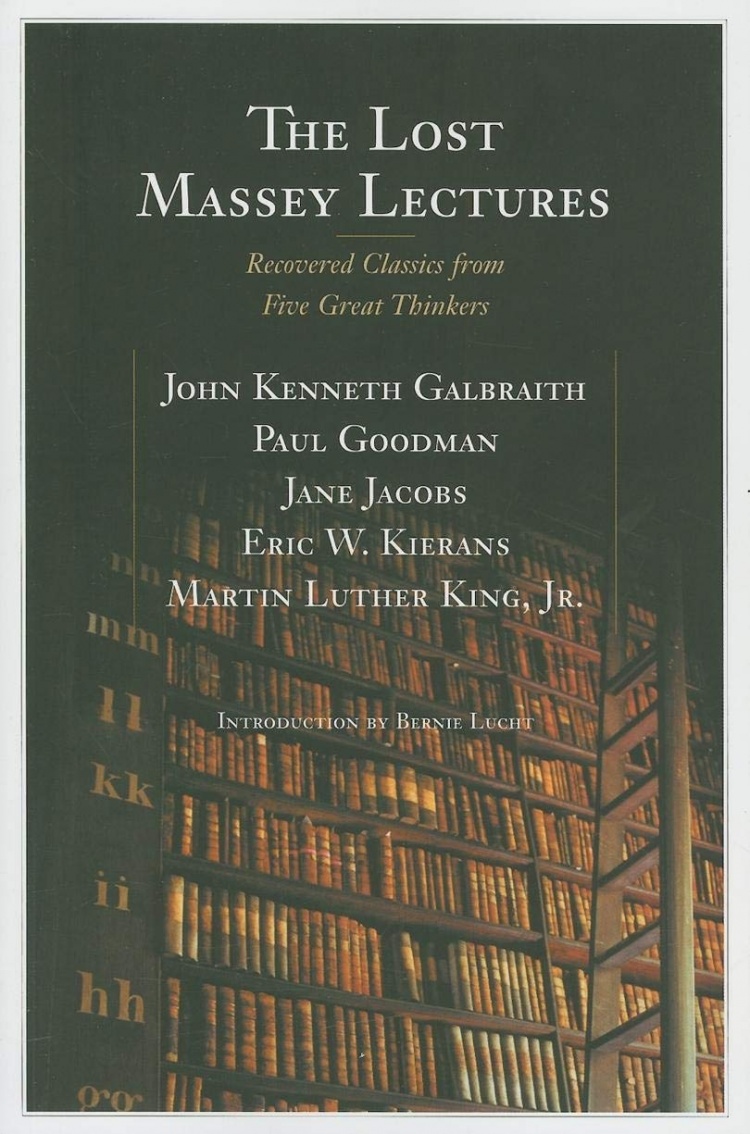MLK’s Lost Lectures on Technology, Alienation, Activism, and the Three Ways of Resisting the System
MLK’s Lost Lectures on Technology, Alienation, Activism, and the Three Ways of Resisting the System

From "MLK’s Lost Lectures on Technology, Alienation, Activism, and the Three Ways of Resisting the System" by Maria Popova, Brain Pickings, 7 October 2021:
[I]n his 1967 Massey Lectures, Dr. Martin Luther King, Jr. (January 15, 1929–April 4, 1968) examined the forces that dispirit the young into cynicism — that most puerile form of impatience — by mapping the three primary regions of reaction and resistance in the landscape of social change.
Launched in 1961 by the Canadian Broadcasting Corporation and named after Vincent Massey — the first Canadian-born person to serve as governor general of Canada...the annual Massey Lectures invited a prominent scholar to deliver five half-hour talks along the vector of their passion and purpose, which were then broadcast on public radio each Thursday evening. Eventually, the CBC began publishing the lectures in book form. But some of the earliest ones, including the five Dr. King delivered in the final months of his life, remained unprinted for decades, until they were finally released in 2007 as The Lost Massey Lectures: Recovered Classics from Five Great Thinkers (public library) [House of Anansi Press, 2008].
...
The most interesting challenge of applying Dr. King’s taxonomy to our own time is that of seeing beyond the surface expressions that shimmer with the illusion of contrast, peering into the deeper similitudes between the attitudes of the past and those of the present...Technology might give the illusion of participatory action in democracy while effecting alienation at the deepest stratum of the soul — something especially true of the vast majority of pseudo-political uses of our so-called social media. Dr. King writes:
Nothing in our glittering technology can raise man to new heights, because material grown has been made an end in itself, and, in the absence of moral purpose, man himself becomes smaller as the works of man become bigger.
Another distortion of the technological revolution is that instead of strengthening democracy… it has helped to eviscerate it. Gargantuan industry and government, woven into an intricate computerized mechanism, leaves the person outside… When an individual is no longer a true participant, when he no longer feels a sense of responsibility to his society, the content of democracy is emptied. When culture is degraded and vulgarity enthroned, when the social system does not build security but induces peril, inexorably the individual is impelled to pull away from a soulless society. This process produces alienation — perhaps the most pervasive and insidious development in contemporary society… Alienation should be foreign to the young. Growth requires connection and trust. Alienation is a form of living death. It is the acid of despair that dissolves society.
In consonance with the animating spirit of this here labor of love, he insists upon the importance of mining the collective record of experience we call history “for positive ingredients which have been there, but in relative obscurity.” Echoing Whitman’s gentle long-ago exhortation that “the past, the future, majesty, love — if they are vacant of you, you are vacant of them,” Dr. King adds:
Against the exaltation of technology, there has always been a force struggling to respect higher values. None of the current evils rose without resistance, nor have they persisted without opposition.